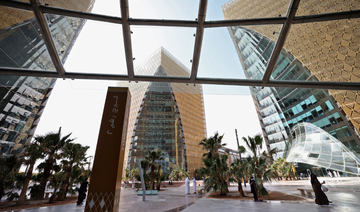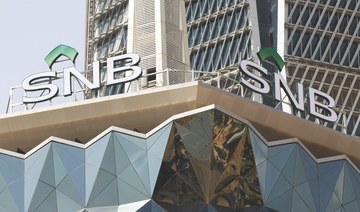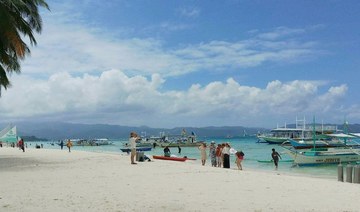LONDON: Egypt’s economy has received a major boost since gas from Zohr, the Mediterranean’s largest offshore field, began to be pumped ashore in Port Said city at the end of last year.
Zohr is one of the most positive energy stories to hit the Middle East recently and a boon to Egypt in particular as the development by Italian operator ENI means the country is close to reaching gas self-sufficiency.
Zohr should wipe out the need for Egypt to buy in expensive foreign gas, thereby bolstering its depleted foreign exchange reserves, and could one day make the country a net exporter to countries throughout the region and, perhaps, beyond.
Mohamed Abu Basha, Cairo-based economist at investment bank EFG-Hermes, told Bloomberg: “One of the biggest issues Egypt had over the past years was the big shift in its energy balance from a net exporter to a net importer because of an increase in consumption versus a decline in production.
“With the new gas finds, it’s returning to this balance, if not exporting, then at least there’s no deficit,” he added.
Egyptian Oil Minister Tarek El-Molla has said initial production will be 350 million cubic feet per day, rising to 1 billion cubic feet in June and 2.7 billion by the end of 2019.
Egypt had to give up gas exports in 2014 to meet local demand and because sporadic sabotage on its main pipeline in the Sinai Desert disrupted shipments.
Zohr, with an estimated reserve of about 850 billion cubic meters of natural gas in place, is expected to close the gap between supply and demand, helping to end Egypt’s reliance on imported liquefied natural gas (LNG) next year, Bloomberg reported.
The offshore field is expected to save Egypt some $1 billion annually in gas imports.
Egypt has two LNG plants, which are more or less mothballed, from which to export once production is ramped up.
In a recent statement, BP said: “The development of Zohr in a record time has brought a new critical source of energy to the Egyptian market.”
BP added that two other current major projects in Egypt — Atoll and the second phase of the West Nile Delta project — will bring further new gas resources into production. “Together these projects will play an important role in supporting and reshaping Egypt’s energy sector.”
Russia’s state-owned producer Rosneft PJSC closed a deal in October to acquire 30 percent of the Zohr field. BP has also bought a 10 percent stake.
An International Monetary Fund report on Dec. 20 said Egypt’s reform program was yielding encouraging results.
The IMF said: “The economy is showing welcome signs of stabilization, with GDP growth recovering, inflation moderating, fiscal consolidation remaining on track, and international reserves reaching their highest level since 2011.”
The banking system was said to remain resilient to moderate shocks, but although the outlook was viewed as favorable, the IMF said sustained efforts were still required to “maintain prudent policies and advance structural reforms to support the authorities’ medium-term objective of inclusive growth and job creation.”
Zohr gas field fires up the Egyptian economy
Zohr gas field fires up the Egyptian economy

Saudi Arabia sees 30% drop in work injuries
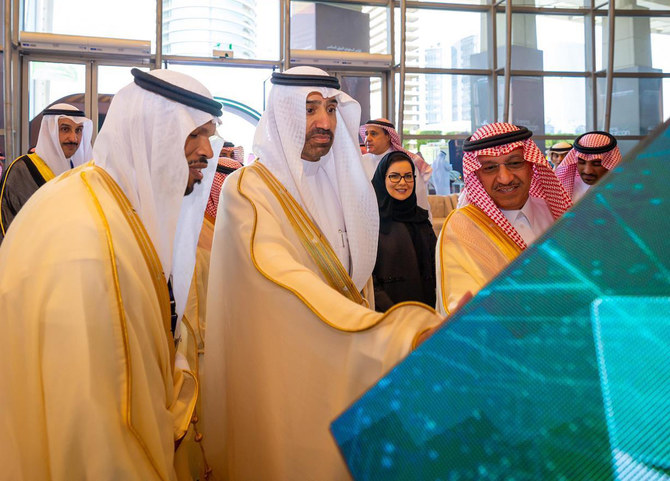
- Saudi minister launches platform for reporting and investigating workplace incidents
RIYADH: Saudi Arabia’s commitment to occupational safety and health has seen the rate of work-related injuries in the Kingdom drop from 416 to 288 injuries per 100,000 workers, over the past few years, marking a notable 30.7 percent decrease.
At the same time, the compliance rate among establishments with occupational safety and health standards has risen to 71.27 percent.
This progress was highlighted by Saudi Minister of Human Resources and Social Development Ahmed Al-Rajhi as he inaugurated the sixth Saudi Global Conference for Occupational Safety and Health in Riyadh on Sunday, signaling a promising future for worker safety in the country.
The forum, which runs until May 7 under the theme “Scanning the Horizon,” covers five main topics: sustainability, corporate safety, technological transformation, cultural awareness, and occupational health.
Al-Rajhi, who is also the chairman of the National Council for Occupational Safety and Health, highlighted the remarkable progress Saudi Arabia has made in the OSH sector in recent years.
He attributed this success to the collaborative programs and initiatives launched in conjunction with Saudi Vision 2030, aimed at creating a vibrant society and building a diverse and sustainable economy.
Al-Rajhi noted that through the national policy on occupational safety and health, the Kingdom aims to strengthen and develop the OSH sector, promote and protect workers across various workplaces at the national level, in line with local regulations and international treaties and agreements, and implement the best global practices suitable for the labor market.
The minister launched the official website of the National Council for Occupational Safety and Health, and mentioned the e-training platform for OSH, as well as the platform for reporting and investigating work-related accidents, injuries, and occupational diseases.
Al-Rajhi praised the council for its dedicated efforts and the collaborative contributions of various sectors within the council and the broader OSH system.
The achievements in the OSH sector were bolstered by the enactment of several pieces of legislation aimed at raising awareness of occupational safety and health issues, notably through the strategic implementation of the national occupational safety and health program, the Saudi Press Agency reported.
Key legislative measures include the issuance of administrative regulations related to OSH and the development of a comprehensive national policy in collaboration with the International Labor Organization and all stakeholders. This policy, endorsed by the Council of Ministers, ensures its integrity and reliability, with careful monitoring and follow-up on implementation, according to the SPA.
Al-Rajhi inaugurated the exhibition accompanying the conference and toured various partner pavilions, sponsors, and participating entities. Among these were the pavilions of the General Organization for Social Insurance and Saudi Aramco.
Saudi banks and capital market poised to drive Vision 2030 objectives: S&P Global
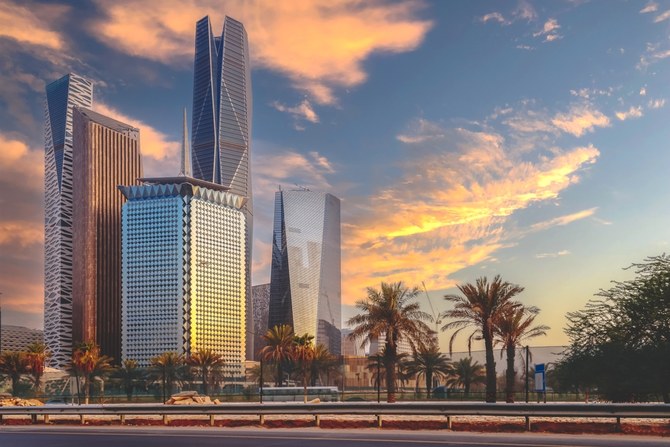
RIYADH: Saudi banks and the capital market are poised to make substantial contributions alongside the Public Investment Fund in achieving the objectives of Vision 2030, stated a report by S&P Global.
The latest analysis by the global rating agency underscores that their involvement in the Kingdom’s economic diversification endeavors will enhance leverage in both the Saudi private sector and the broader economy.
The report, citing public sources, indicated that the Saudi government’s transformation program aimed at enhancing the country’s economic, social, and cultural diversification will necessitate approximately $1 trillion in investments over several years.
“Part of this sum will come directly from the government and the Public Investment Fund, but S&P Global Ratings also expect banks and capital markets to contribute a significant amount,” stated the US-based agency in the report.
It added: “This will inevitably increase leverage in the Saudi private sector and the broader economy, albeit from low levels. The pace and extent of the increase in leverage in the corporate sector remain uncertain.”
As per the report, Saudi Arabia’s banking sector maintains a robust position, characterized by strong asset-quality indicators and overall capitalization.
The credit rating agency further anticipates that the banks’ sound profitability and conservative dividend payouts will persist, thereby bolstering their capitalization over the next one-to-two years.
S&P Global highlighted the expansion of the capital market in the Kingdom, noting that from January to May 2024, 13 private companies have announced potential listings on Saudi Arabia’s main market and parallel market.
The analysis projected that Saudi Arabia will experience a real gross domestic product growth of 2.2 percent in 2024 and 5 percent in 2025, with the non-oil private sector emerging as a key contributor to this expansion.
Earlier this month, S&P Global, in another report, noted that banks in Saudi Arabia are expected to pursue alternative funding options to manage the rapid expansion in lending.
The agency said that this pursuit of external funding could potentially impact the credit quality of Saudi Arabia’s banking sector.
“The ongoing financing needs of the Vision 2030 economic initiative and relatively sluggish deposits growth, is likely to incentivize banks to seek alternative sources of funding, including external funding,” said S&P Global.
SAL launches fulfillment services to transform Saudi logistics landscape
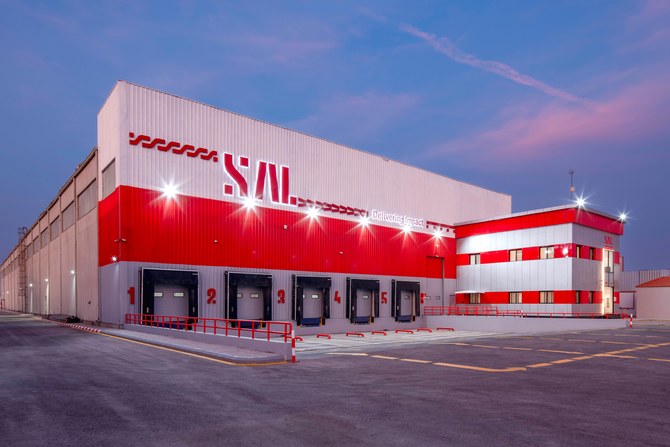
SAL, Saudi Arabia’s leading logistics and supply chain solutions provider, has announced the launch of its Fulfillment Business Unit, a one-stop-shop solution aimed at revolutionizing the logistics and supply chain industry in the Kingdom.
SAL’s fulfillment services represent a comprehensive commitment to meet the growing requirements and accelerated needs in the Saudi logistics sector. By successfully providing an integrated approach that combines air cargo handling and logistics solutions, SAL’s new service will enhance operational efficiency and increase reliability.
With a vision to transform the logistics landscape, SAL’s fulfillment services are designed as a one-stop-shop solution. Leveraging its strong foothold as a leading logistics company with an expansive logistics network, SAL aims to address the growing demand for integrated fulfillment services in the Saudi market.
The heart of SAL’s Fulfillment Business Unit lies in its holistic approach, combining a comprehensive suite of value-added services with expertise in cold chain logistics and robust digital enablement. By seamlessly integrating fulfillment and logistics solutions, SAL today is offering an integrated service that extends from the first mile to the last.
SAL’s fulfillment centers will offer an advanced warehouse management system, which serves as the backbone of its digital strategy, providing customers with real-time access to operational data and metrics. This digital platform enables users to place orders, track their progress, and generate customized reports, enhancing operational transparency and efficiency.
As part of its expansion strategy, SAL is investing in the establishment of a growing network of fulfillment centers in key locations across the Kingdom. With targeted facilities in Riyadh, Jeddah port and Dammam port, SAL’s state-of-the-art warehouses serve a variety of industries, ranging from perishable goods to pharmaceuticals and high-value materials.
“Our fulfillment services represent our solid commitment to delivering unparalleled logistics solutions,” said Faisal Albedah, CEO of SAL. “With our extensive network, cutting-edge technologies and a dedicated team, we are well-positioned to meet the evolving needs of our customers and drive growth in the Saudi logistics sector.”
Philippines seeks to position itself as top tourism destination at Arabian Travel Market
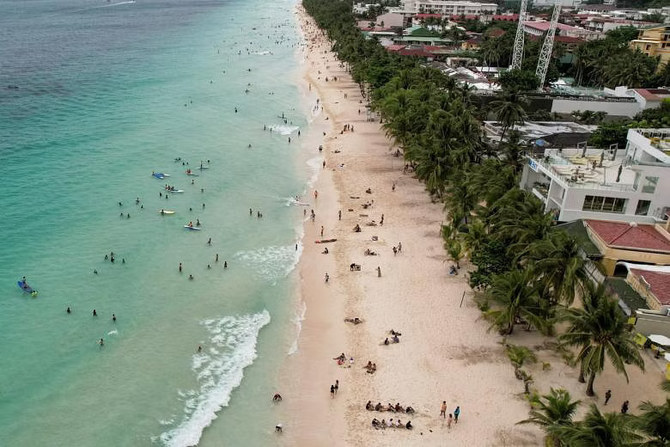
- Philippines has recorded 10 percent increase in visitors arriving from Gulf countries this year
- The country wants to become a preferred destination in Asia and the world
MANILA: The Philippines is working to attract more visitors from the Middle East and position itself as a preferred destination for international travelers, its tourism stakeholders said ahead of the Arabian Travel Market in Dubai.
More than 2,300 exhibitors and delegates from over 165 countries are joining the annual Arabian Travel Market, which this year will take place from May 6 to 9 at the Dubai World Trade Center.
In the Philippines, known for its white sandy beaches, diving spots and diverse culture, tourism is a key sector, contributing nearly 13 percent, or about $44 billion, to its gross domestic product in 2019.
The Department of Tourism will be leading the Philippine delegation in Dubai, as officials set their eyes on promoting the country’s best tourism to the international market.
“We look forward to these opportunities to share the Filipino story to the rest of the world … and to reinforce the Philippines’ position as a preferred destination and top-of-mind choice for travelers,” Secretary of Tourism Christina Garcia Frasco said in a statement.
With its participation at the Arabian Travel Market, the Philippines hopes to sustain the momentum from increased tourist arrivals from the Middle East, she added.
The Philippine tourism industry will not only promote their strengths, such as their tropical and natural attractions, but also diverse offerings in gastronomy and culture, as well as the Filipino tourism workers, “who serve as our best asset for their distinct hospitality and warmth,” Frasco said.
The Philippines has welcomed more 2 million international travelers since the beginning of the year, according to data from the tourism department. This includes a 10 percent increase in visitors arriving from Gulf countries, especially Saudi Arabia and the UAE, which has been among the Philippine government’s key emerging-market targets.
“There’s been a remarkable surge in outbound tourism from the Middle East, particularly from Gulf Cooperation Council countries … We see a growing appetite for international travel among GCC citizens and we see this trend continuing to rise in the coming years,” said Maria Margarita Montemayor Nograles, chief operating officer of the Tourism Promotions Board.
“This is one of the major reasons why we are doubling down on our efforts to maintain and enhance our presence in the Middle East. With our continued participation at the ATM, we aim to position the Philippines as a top-of-mind destination in Asia.”
Tourists from the Middle East are growing more important for some Filipino tourism operators, and represent a significant segment of their clientele, said Manih Karay, president of CTPH Tour.
“To appeal to tourists from Arab countries and promote the Philippines, we highlight the country’s natural beauty, rich cultural heritage, and warm hospitality … Their interest in exploring new destinations and cultural experiences aligns well with our commitment to providing inclusive and diverse travel services,” Karay told Arab News.
Arab tourists also contribute to the growth of the Philippines’ tourism industry, Karay said, adding that they foster cultural exchange and economic development.
“Their visits not only enrich our travel experiences but also promote mutual understanding and appreciation among different cultures,” she said.
Saudi Arabia’s non-oil revenues up by 3% in Q1 of 2024
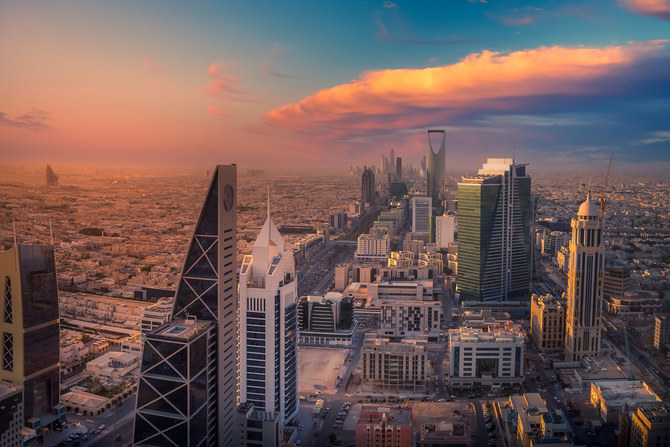
RIYADH: Saudi Arabia’s non-oil revenues rose by 3 percent to reach SR111.51 billion ($29.73 billion) in the first quarter of 2024 the final quarter of 2023, the Ministry of Finance said.
In its quarterly budget performance report, the ministry said the Kingdom posted total revenues of SR293.43 billion in the same quarter, while its public spending amounted to SR305.82 billion.
According to official data, total revenues slipped 18 percent as compared to Q4 of 2023.
In the first quarter of the current year, the Kingdom posted a budget deficit of SR12.39 billion with oil revenues reaching SR181.92 billion.


